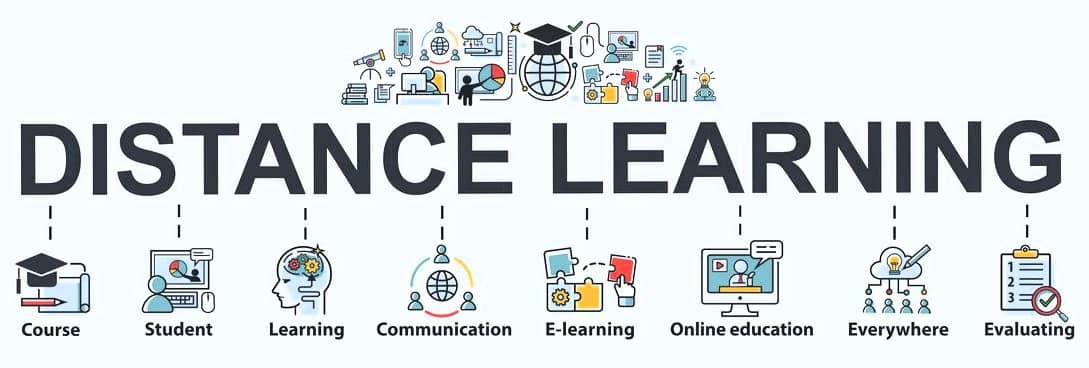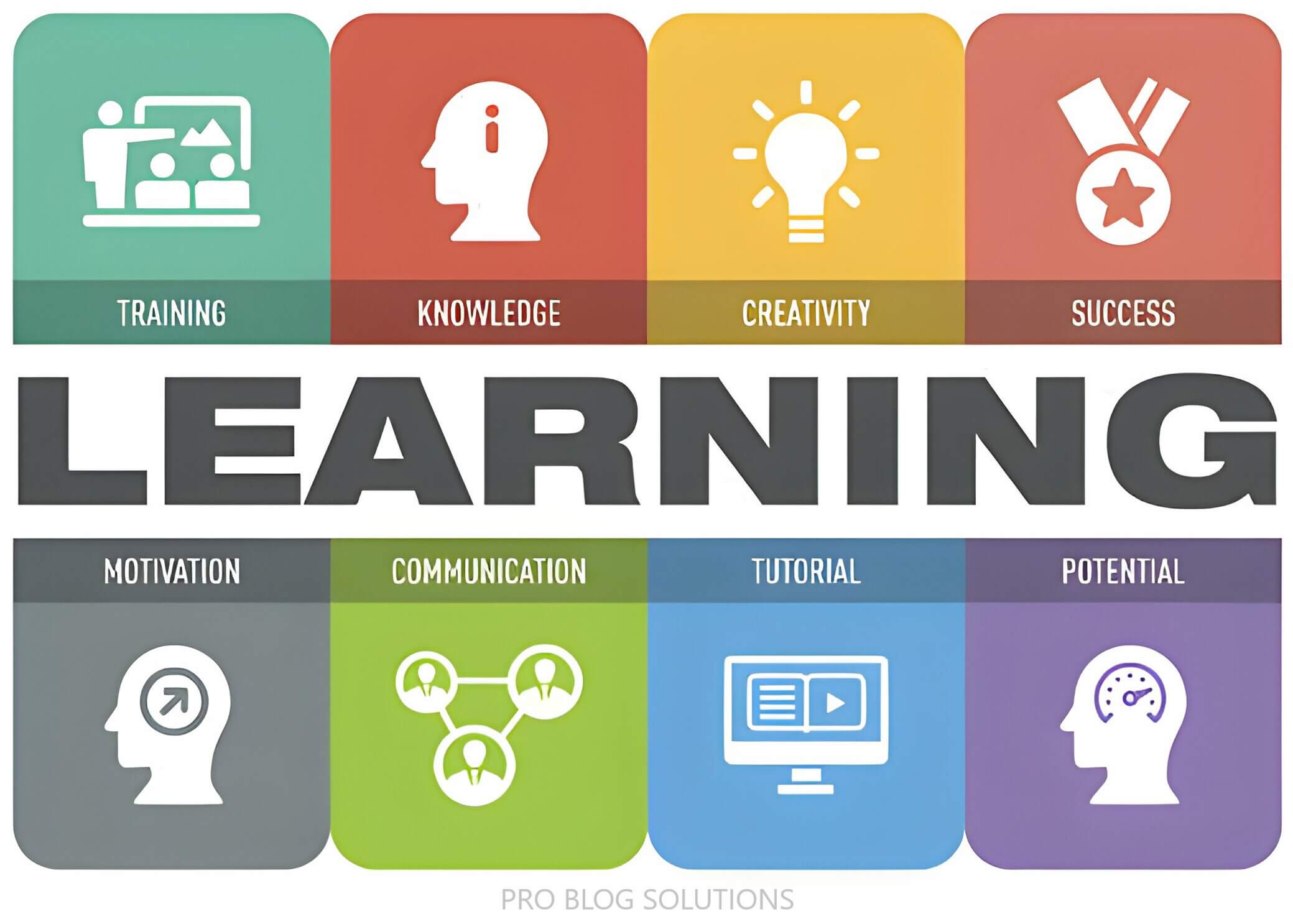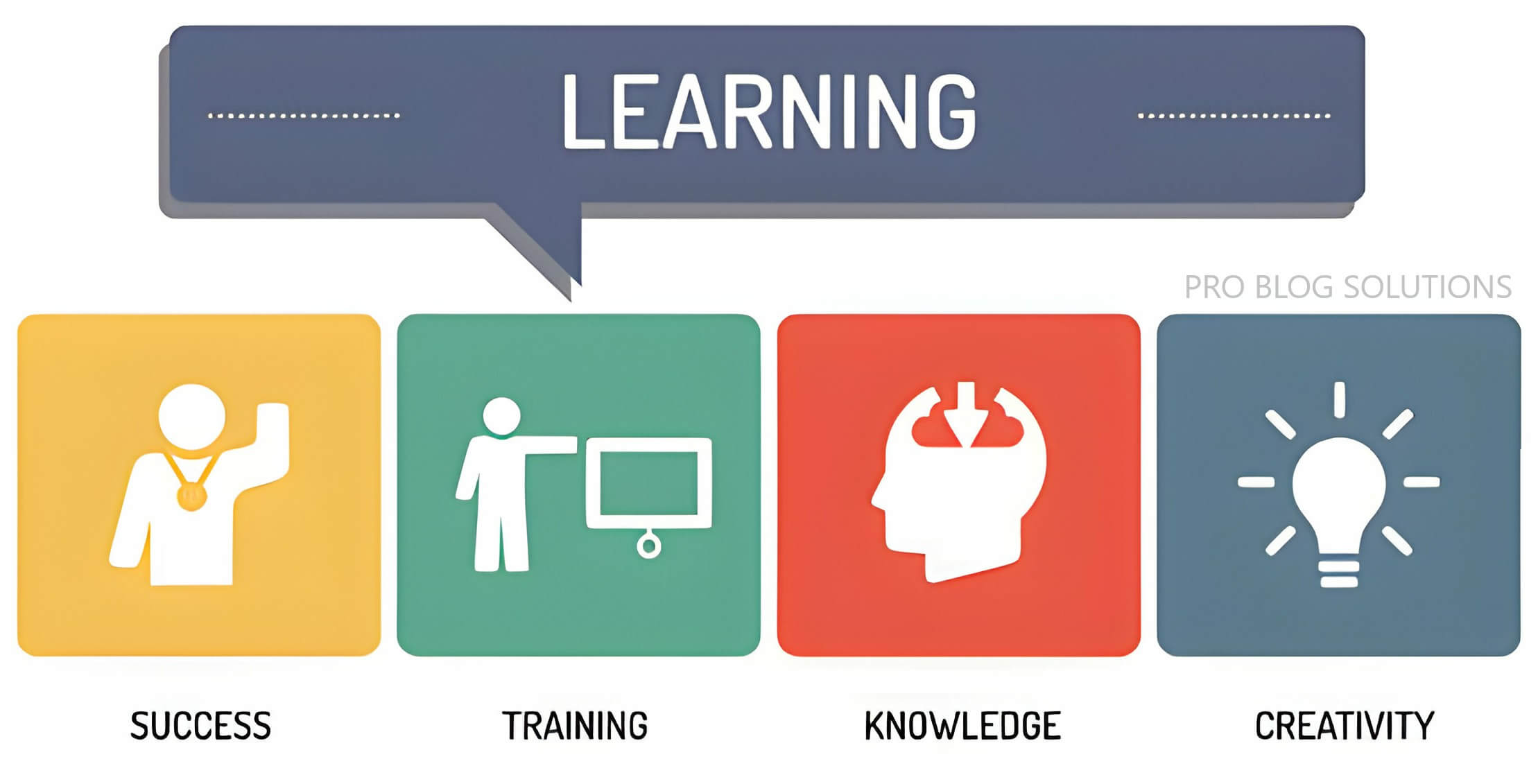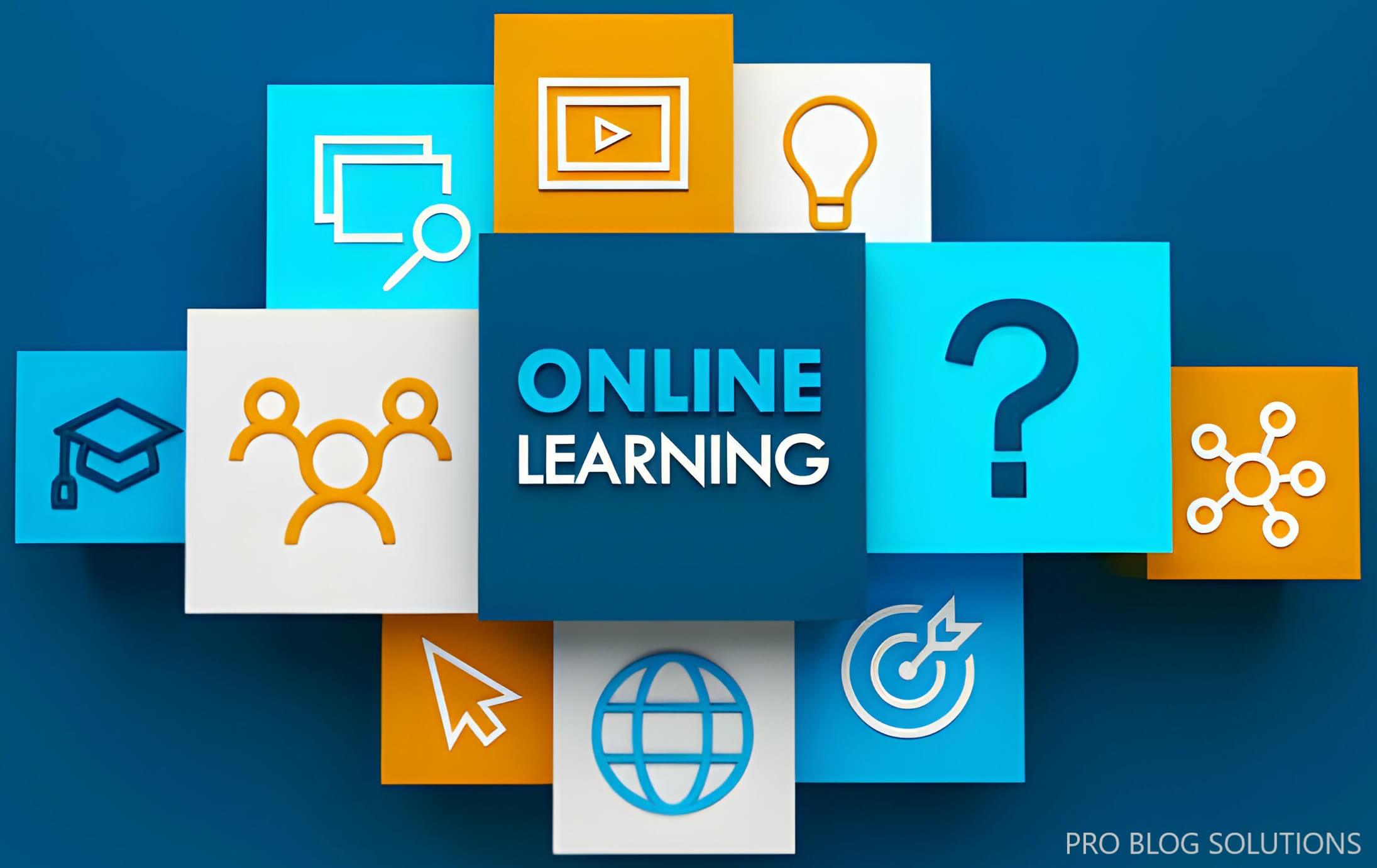As we know, the world is getting small, and we live in a global village. A person sitting in one corner of the world can talk to a person sitting on the other side of the world.
Technology has really shrunk the world. Technology has affected every aspect of our daily life. No one has remained untouched by this revolution.
Distance education is a concept that has gained significant popularity over the past few years. Distance learning programs have helped many students unable to attend campus-based or full-time courses realize their educational aspirations.
With distance education, learning instruction is disseminated over the Internet through an online learning portal or video conference software. But just like any other education program, distance learning comes with a set of pros and cons.
Distance learning might not be the best choice for every student pursuing a college degree or university program. Thus, understanding its advantages and drawbacks can help one decide whether or not it is the right program to follow.
However, in this article, we shall discuss an aspect where technology has made a significant change: distance education.
What is Distance Education?

Distance education is a mode of learning that allows students to learn without being physically present in a traditional classroom.
It can be delivered through various media, including the Internet, television, and correspondence courses.
Distance education has become increasingly popular in recent years, offering several advantages over traditional classroom learning.
For example, distance education can be more flexible and convenient, as students can learn at their own pace and from anywhere in the world. Additionally, distance education can be more affordable, as students do not have to pay for transportation or childcare.
Many distance education programs are available, including undergraduate and graduate degrees, certificate programs, and professional development courses.
Some of the most popular distance education providers include the University of Phoenix, Capella University, and Western Governors University.
Considering a distance education program, you should remember a few things. First, it is crucial to make sure that the program is accredited.
Second, you should research the program's reputation and track record. Finally, you should ensure the program fits your learning style and needs well.
Distance education can be an excellent option for students seeking a flexible, convenient, and affordable learning method. If you are considering a distance education program, research and choose a program that is right for you.
You may also like to read:
- Easy Businesses You Can Start With No Money
- How AI Provides Protection Against AI-Driven Cyber Threats
- Best Ways to Earn Money Online Without Paying Anything
- 36 Best Blogging Tools & Platforms to Be Successful
- Easy Ways to Make Money Online in the Digital World
Advantages and Disadvantages of Distance Education

As we all know, distance education is a form of learning that does not require students to attend in-person classes. Instead, it uses online platforms and technologies to deliver instruction and interaction.
Data Chart Comparisons of Advantages and Disadvantages of Distance Education
| Advantage | Disadvantage |
|---|---|
| Flexibility – Asynchronous learning allows for self-paced study and scheduling according to individual needs. | Social Isolation – Reduced face-to-face interaction with instructors and peers can lead to feelings of isolation. |
| Convenience – Participation in coursework is possible from any location with an internet connection. | Time Management Skills – Effective distance learning requires strong self-discipline and time management to stay on track. |
| Cost-Effectiveness – Distance education programs may offer lower tuition fees and eliminate commuting costs. | Limited Hands-on Learning Opportunities – Certain subjects requiring practical experience may be less suited to a remote learning environment. |
| Expanded Course Selection – Access to a broader range of programs unavailable in local institutions. | Technical Dependence – Reliability of technology and consistent internet access can disrupt learning. |
| Self-Directed Learning – The ability to revisit and review course materials at one's own pace can enhance comprehension. | Motivation – Success in distance education often hinges on high self-motivation and independent learning skills. |

Distance education has advantages and disadvantages, depending on the learners' context and goals. Here are some of them:
Advantages of Distance Education:
It allows students to plan their schedule and study at their own pace, according to their needs and preferences.
It enables students to study anywhere, as long as they have a computer with internet access. This can be beneficial for people with disabilities, those living in remote areas, or those who have family or work obligations.
It offers on-the-job training for students who want to combine their studies with professional development. They can immediately apply their knowledge and skills to their work context and receive feedback from their tutors and peers.
It can result in high learning outcomes, as students are more engaged and motivated by technology and multimedia and can access various learning materials and resources anytime.
It can reduce stress and anxiety associated with traditional classrooms and allow students to balance academic, personal, and social lives, promoting mental health.
Disadvantages of Distance Education:
It can pose technical challenges and barriers for students who do not have reliable internet access, adequate devices, or sufficient digital literacy skills.
It requires students to have high self-discipline, motivation, and organization, as they are responsible for managing their learning process and meeting deadlines.
Due to the lack of face-to-face interaction, distance learning can lead to isolation and a lack of social engagement among teachers and students, resulting in limited participation in group activities.
It can result in low-quality or inconsistent instruction and assessment, as some online courses may not be designed or delivered by qualified or experienced educators or may not meet the standards and expectations of the learners or the accreditation bodies.
It can limit the choice of courses or programs available for students who want to pursue specialized or advanced studies, as some subjects may not be suitable or feasible for online delivery.
Distance education can be an excellent option for students seeking a flexible, convenient, and affordable learning method. However, it is crucial to be aware of the challenges of distance education before making a decision.
Distance education has really changed the way we see higher education. It is a growing phenomenon worldwide, and people want to know more about it.
Before joining distance education, you should know the advantages and disadvantages of distance learning. We are going to cover every aspect of distance education in detail below.
Advantages of Distance Education

Here are some specific examples of how distance education can help students:
- A student working full-time and raising a family may not be able to attend a traditional college. Distance learning can allow these students to continue their education without quitting their jobs or taking time away from their families.
- A student who lives in a rural area may not have access to a traditional college. Distance learning can allow this student to attend college without moving away from home.
- A student with a learning disability may struggle to keep up in a traditional college classroom. Distance learning can provide this student with more flexibility and support.
Study From Anywhere
The best thing about distance education is you can learn it anywhere and anytime. It does not matter what part of the country you are living in; you can join the course and start learning.
Even if your course is offered by an international school, you could easily access course material if you are a citizen of a different country.
Get all the knowledge and training anywhere you reside on the planet.
Flexibility of Time
Typically, distance education offers flexibility in time. It gives complete freedom to choose your time for taking the course.
If you do not have time during the day, you can learn at night or some other time because you only need a computer with an internet connection.
You do not need to go in person to submit anything. Time is the most important thing; you could save it by joining distance learning.
No Commuting
I hate commuting. If you opt for distance education, you must not commute in crowded buses or local trains.
As I said earlier, you need a computer with an internet connection in your home. The entire college would be in your bedroom, and you do not have to go out.
Commuting is the most challenging part because you waste time, money, and, more importantly, energy. No one likes commuting for long hours.
Different Schools and Colleges
There are many schools and colleges now that offer distance education. Hence, you will not have any problem finding a college.
You could choose the college which is best for you. In the United States of America, Harvard University is an excellent university that offers distance education. Although you do have to attend a few classes in a week, it gives you natural flexibility.

Similarly, there are many other colleges & universities like Harvard University where you can join and get your education distantly.
Lower Costs
This is another great advantage of distance education. The total cost of joining a Distance College is much less than entering a regular college.
You can easily afford distance education if you are from a poor background. Moreover, the fees for specific distance learning courses are much lower than those for a full-time regular college.
Hence, if you feel you have a shortage of money, you could get a quality education at a low price.
High Training Results
Studies by American scientists show that the results of distance learning are not inferior or even superior to traditional forms of education.
Distance learning students study most of the learning material on their own.
This improves the memorization and understanding of the topics learned, and the ability to immediately apply the knowledge in practice at work helps to consolidate it.
In addition, using the latest technology in the learning process makes it more exciting and lively.
Learn While Working
You can learn or pursue your college while you are working. As I said earlier, distance education offers complete flexibility in choosing time.
Distance learning will not conflict with the timings of your day job. You could work all day and study at night or vice-versa. Therefore, if you are a working professional, you could choose distance education without affecting your 9 to 5 job.
Moreover, it is suitable for housewives who can learn sitting at home. So, these were the advantages of distance education.
Recommended for you:
- Internet Safety Tips to Avoid Being Scammed Online
- Emerging Technologies that Will Change the World
- Top Best Chrome Extensions for Bloggers (FREE)
- Steps to Build a Successful Video Marketing Strategy
- How to Protect Your Computer From Malicious Attacks?
Disadvantages of Distance Education

However, with advantages, there are some severe shortcomings of distance education. Here are they and here are some tips for overcoming the disadvantages of distance education:
- Choose a program that is accredited and has a good reputation. This will help ensure that the program is high quality and that you will receive a good education.
- Make sure the program fits your needs and learning style. Not all distance education programs are created equal. Some programs are more self-directed, and some offer more interaction with instructors and peers. Choose a program that is a good fit for you.
- Be prepared to work hard. Distance education requires a lot of self-discipline and motivation. Be ready to set aside time each day to study and complete your coursework.
- Take advantage of the resources available to you. Most distance education programs offer a variety of resources to help students succeed. These resources may include online tutoring, discussion boards, and student support services.
No Interaction with Teachers
The worst thing about distance education is you cannot interact with your college professor or teachers. In fact, you cannot even talk to friends and colleagues as you do in a typical college course.
You seriously miss the human aspect because you only engage with technology and machines. You cannot socially mingle with your friends and enjoy everyday college life.
Moreover, if you have doubts, you must clear yourself up without getting help from your teacher or friends.
Lack of Learning Environment
Sometimes, you cannot replace a natural college environment with a virtual one on your computer.
In distance education, you lack the seriousness present in a classroom when the lecture is given by the professor. Moreover, here, you are alone, and you do not have anybody to compete with because you are alone.
Without any competition, you tend to learn less. Therefore, the overall learning environment in distance education is very different from that in a regular college.
Job Markets Not Accept Online Degrees
This could be pretty dangerous if you rely on distance education for a degree. You might get a degree, but that will not be recognized by private companies in the job market, and the same problem is in government jobs.
Still, employers prefer a degree from a regular college over online or distance education. They think that distance education is still not a severe form of education.
Therefore, if you think you will get a job with an online degree, then you might be wrong.
Not all Courses Can be Learned
Moreover, online courses or distance education have some severe limitations when it comes to offering classes. It might not be available if you want to specialize in a particular subject.
Moreover, there are specific courses in which practical demonstration is more important than lectures on videos. So you cannot learn such lessons.
Not Suitable for Everyone

The format of online courses is not suitable for everyone. Sometimes, you will not understand anything taught through an online video.
Certain students could never understand what they are trying to teach you. So this is another limitation of distance education.
Problem of User Identification
So far, the most effective way to see if a student has passed exams or credits honestly and independently is through video surveillance, which is not always possible. Students must attend the final exam in person to visit the university or its branches.
Internet Availability and Affordability
Finally, it is sad that everyone cannot afford a computer and an Internet connection because you need these things for distance learning.
All the lectures and conferences that would be given would be through a webinar, and you need a high-speed internet connection.
Many people cannot afford it. So, they cannot attend a distance education college because of their financial condition.
Final Words on Advantages and Disadvantages of Distance Education:
So, these were the advantages and disadvantages of distance education. Despite its drawbacks, distance learning is gaining popularity among students like never before, with many students satisfied with their learning experience.
With further advances in technology and more training to adapt teachers to this new mode of learning, the disadvantages of distance learning can soon be sorted out.
Despite its numerous drawbacks, distant learning gives students who want more comfort and flexibility in choosing a course many more learning options.
Distance education's key advantage is that it allows students to use minimal financial resources to access various learning tools. The use of video conferencing tools makes online learning even more immersive.
This increases the ability to gather information on a specific topic and to preserve it. Distance education, however, limits social interaction and requires complex technology, and some employers perceive it negatively.
Any student who wants to register for a diploma or graduate degree should balance advantages and disadvantages to decide if it is the right option. Distance training will usually be the perfect option for students working.
There are advantages and some drawbacks, but the bottom line is if you want to learn something new, then you could take up a distance learning course.
However, you cannot rely on imagining that it will give you a job one day because employers still do not prefer distance education. So, don’t think of getting a degree through distance education; you can use it to learn something new.






